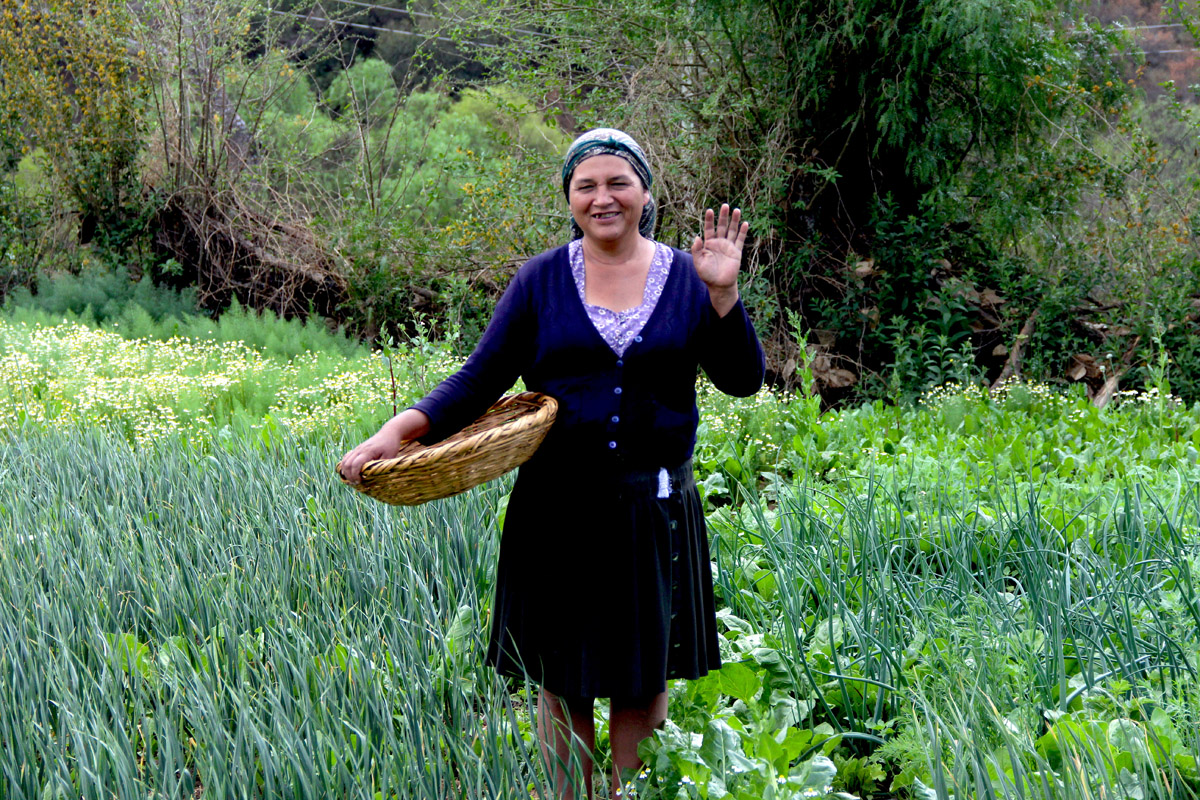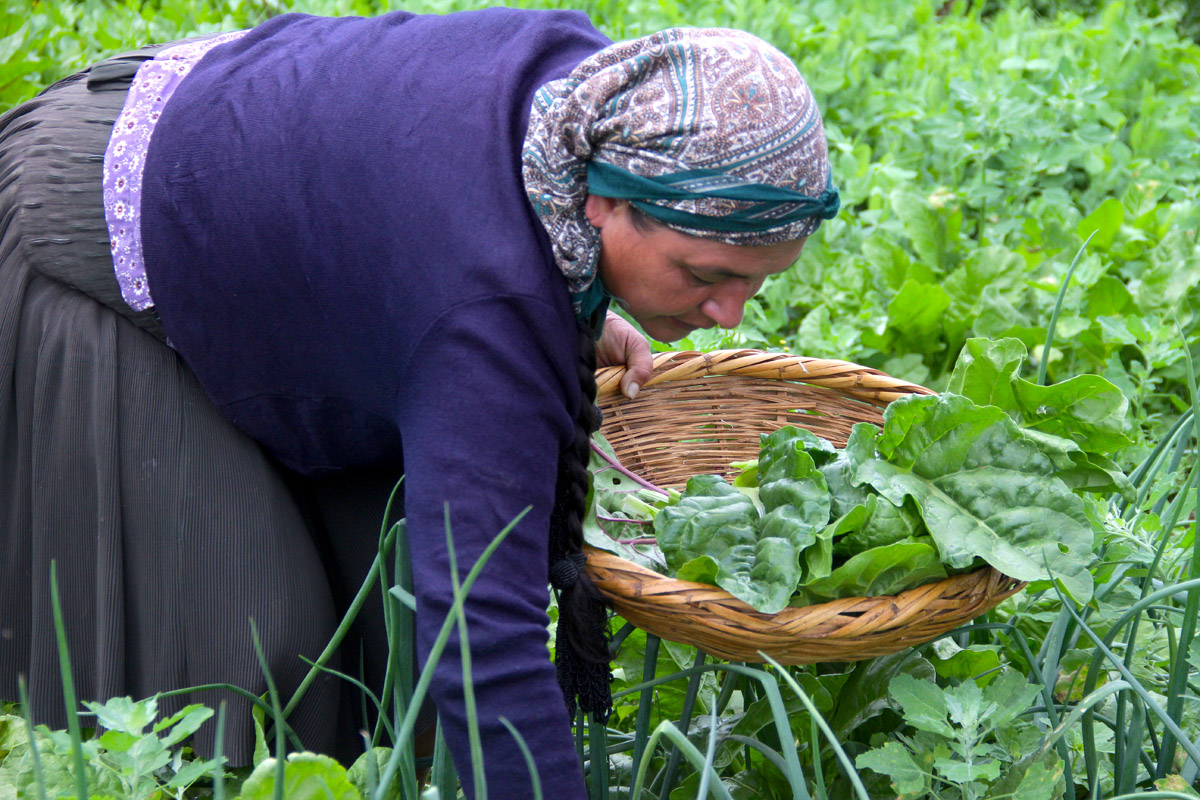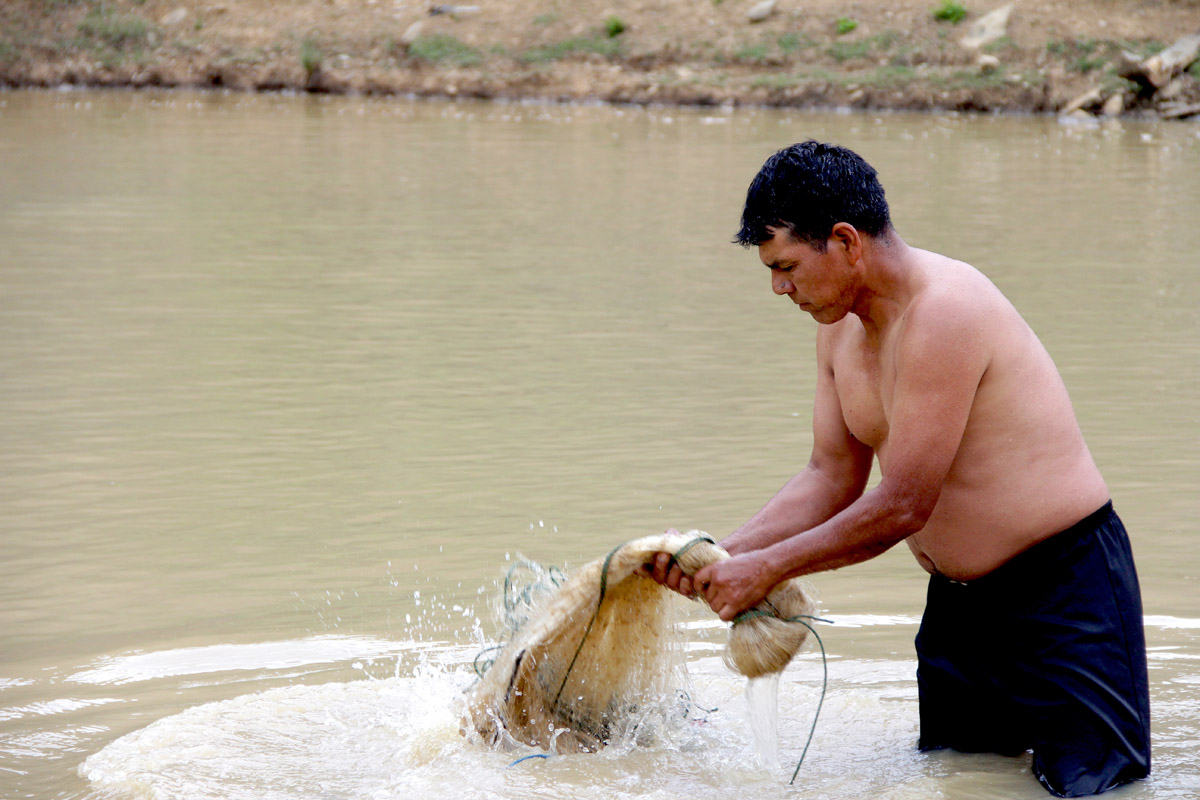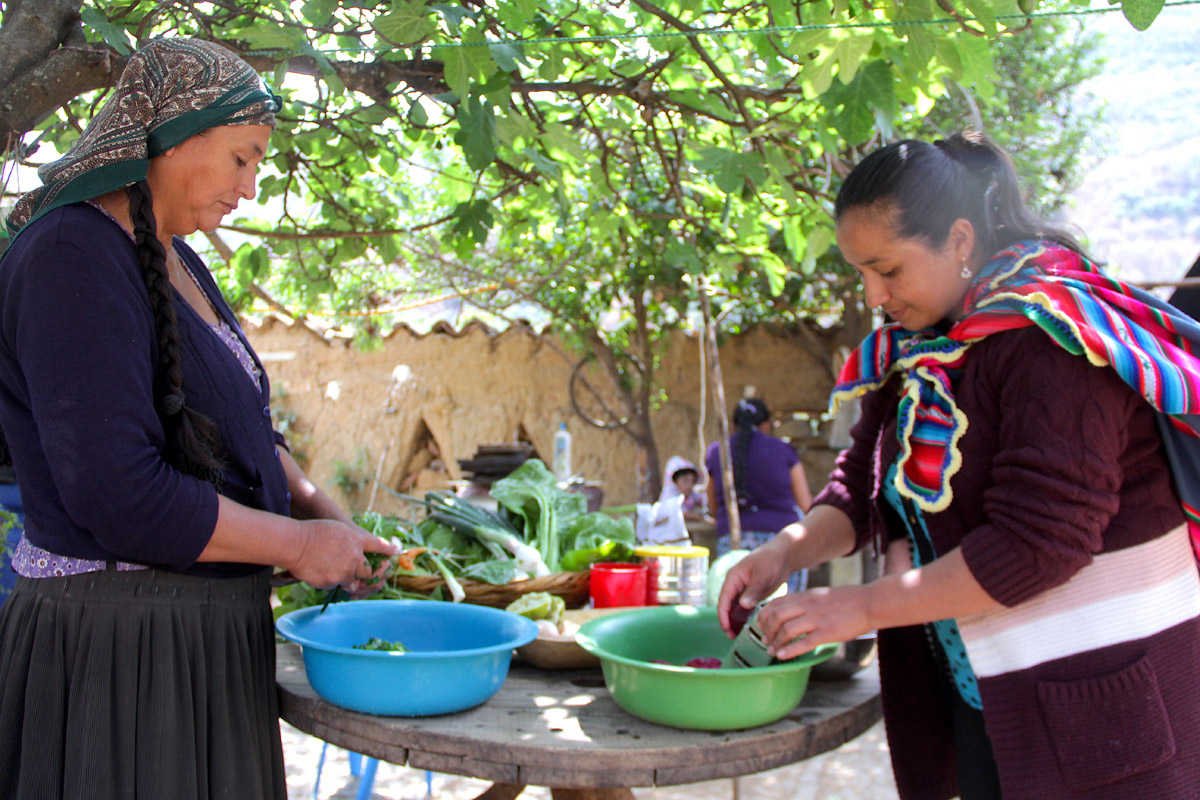Born in a small community called “El Villar” in the Bolivian province of Chuquisaca, Nelvy was raised in a family of farmers. “My parents and grandparents used to grow garlic and onions”, she recalls. “Here in this community, we do farming and we raise livestock.”.
No wonder Nelvy and her husband Pastor, together with their four children, have built one of the richest family gardens in the community. “Now we have onions, carrots, lettuce and beets”, she says, referring to the colourful pile of produce now covering her kitchen table.
However, growing all these nutritious foods, and other medicinal plants like chamomile and lemon verbena, has been challenging for the family in the last few years. “In this valley area we have heavy snowfalls and droughts that affect our production”, she says. “We have droughts when it’s supposed to be raining, and we have rain when it’s not rainy season. And sometimes, while we are in harvest season, we have snowfalls. All this has really affected us.”
But climate change is not the only threat to the wellbeing of Quechua families in the region. Poverty, malnutrition, illiteracy, high infant mortality and low life expectancy are the norm here awhile people need to walk hours to get to the closest health post.
 Red Cross Red Crescent magazine
Red Cross Red Crescent magazine 









